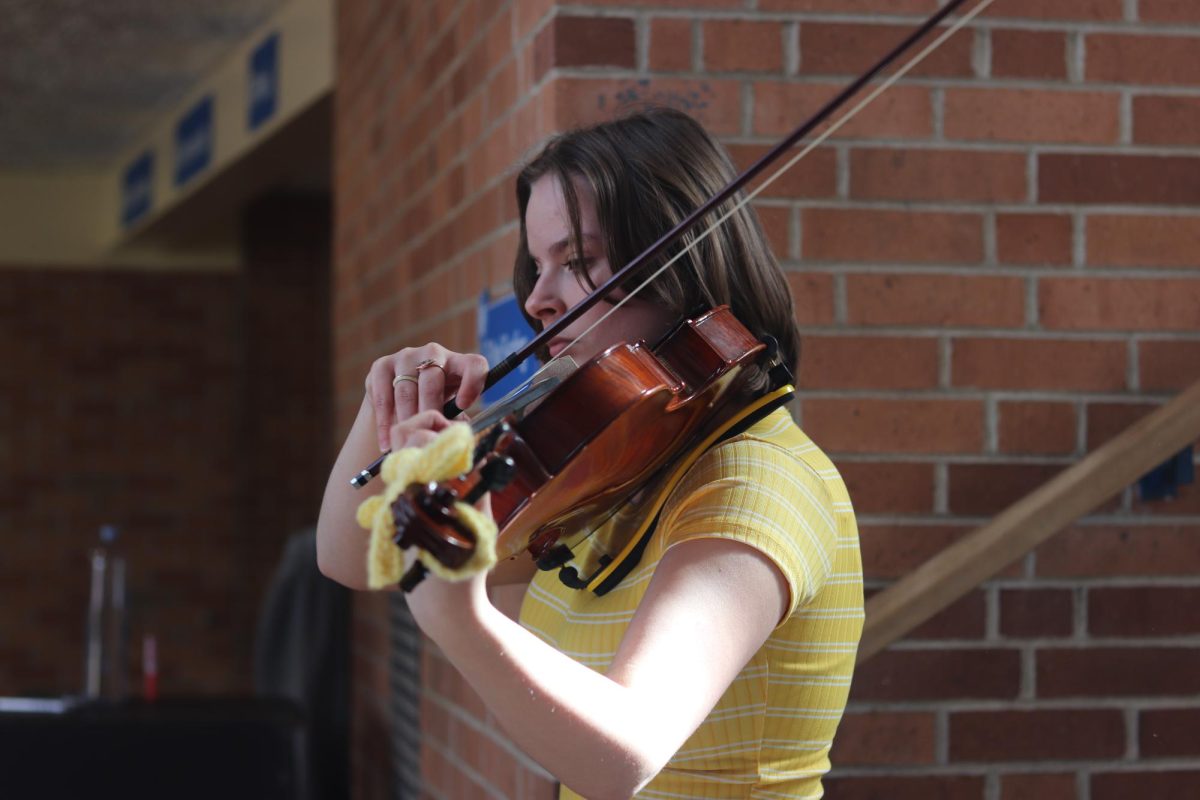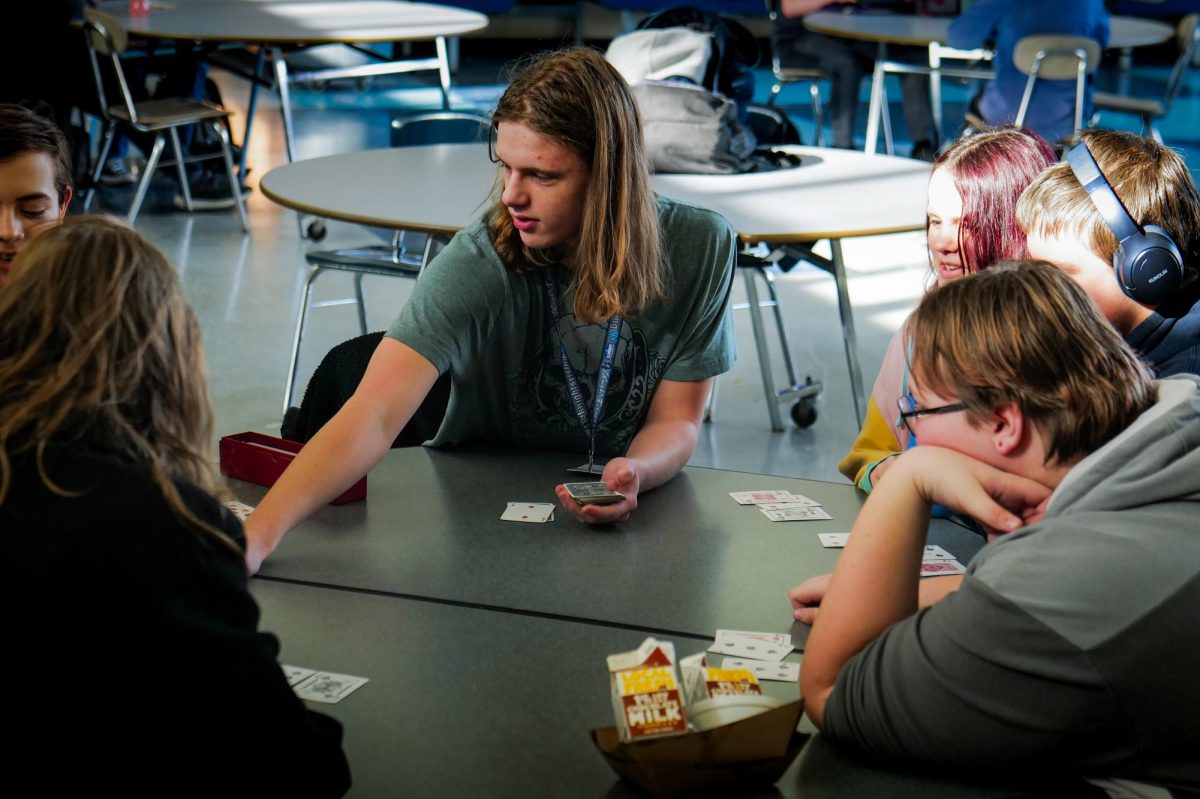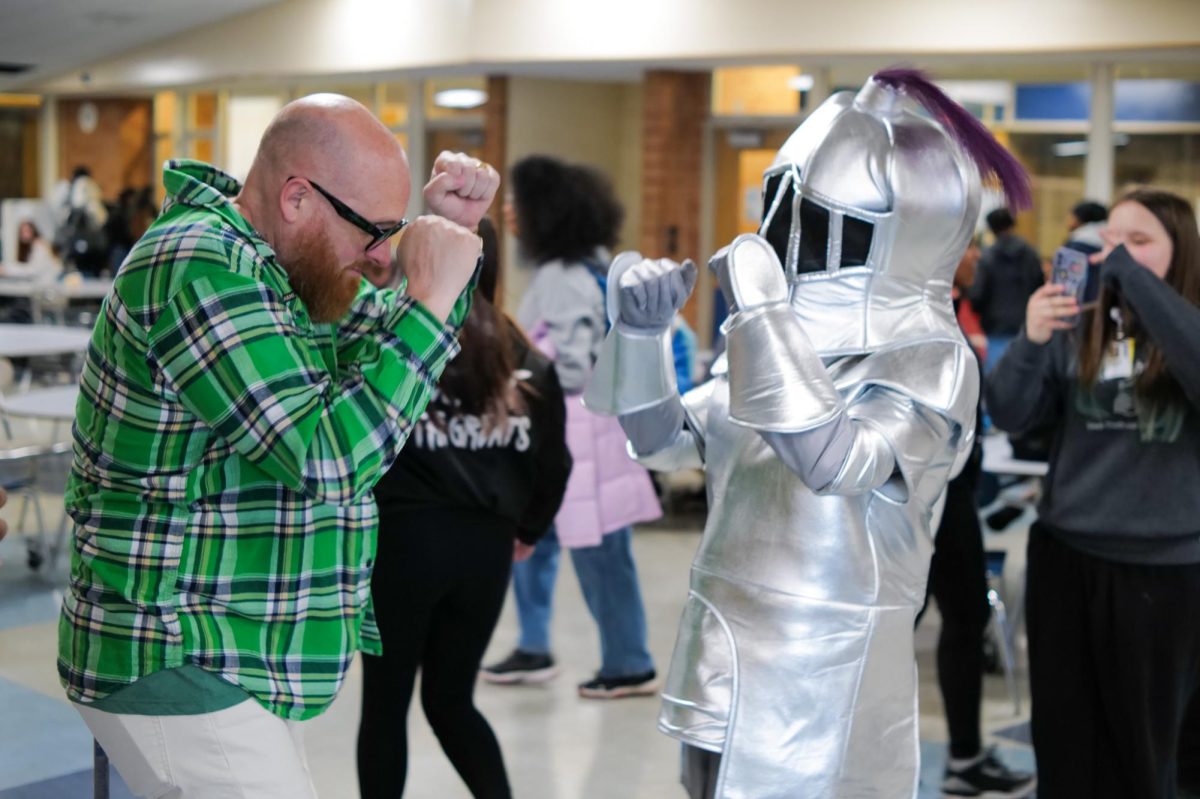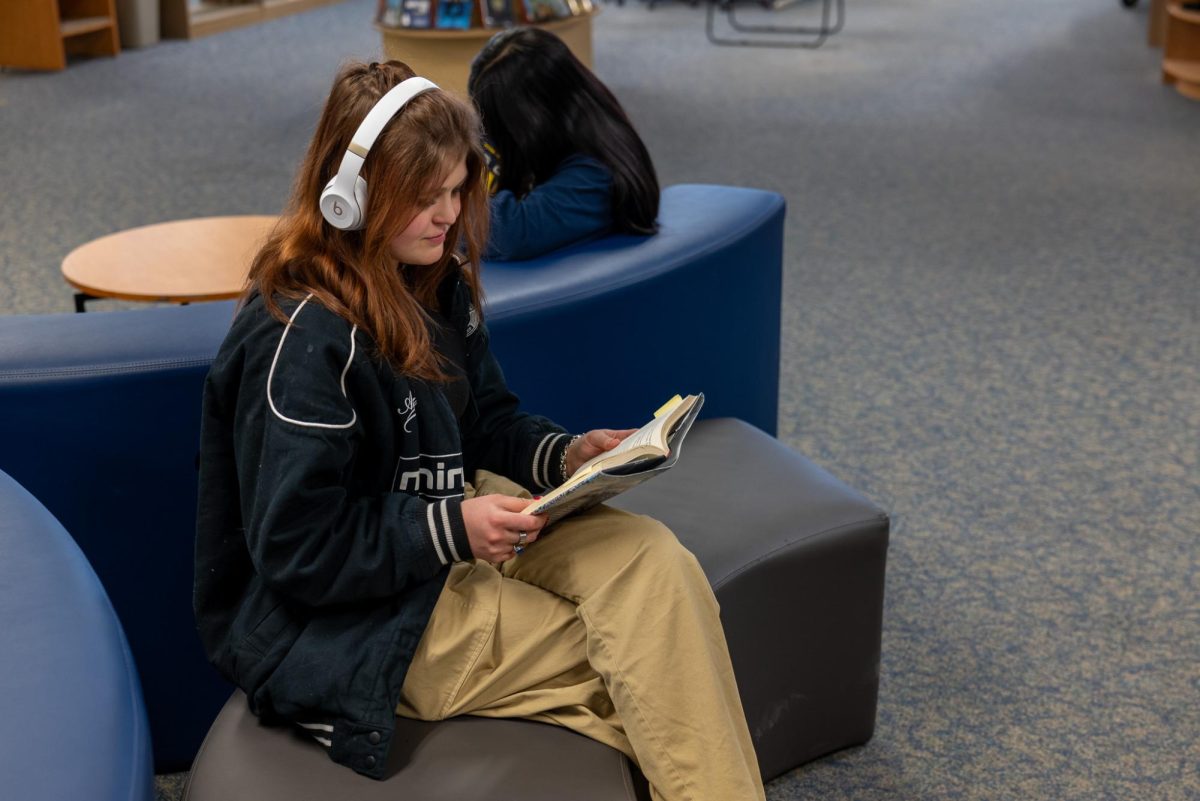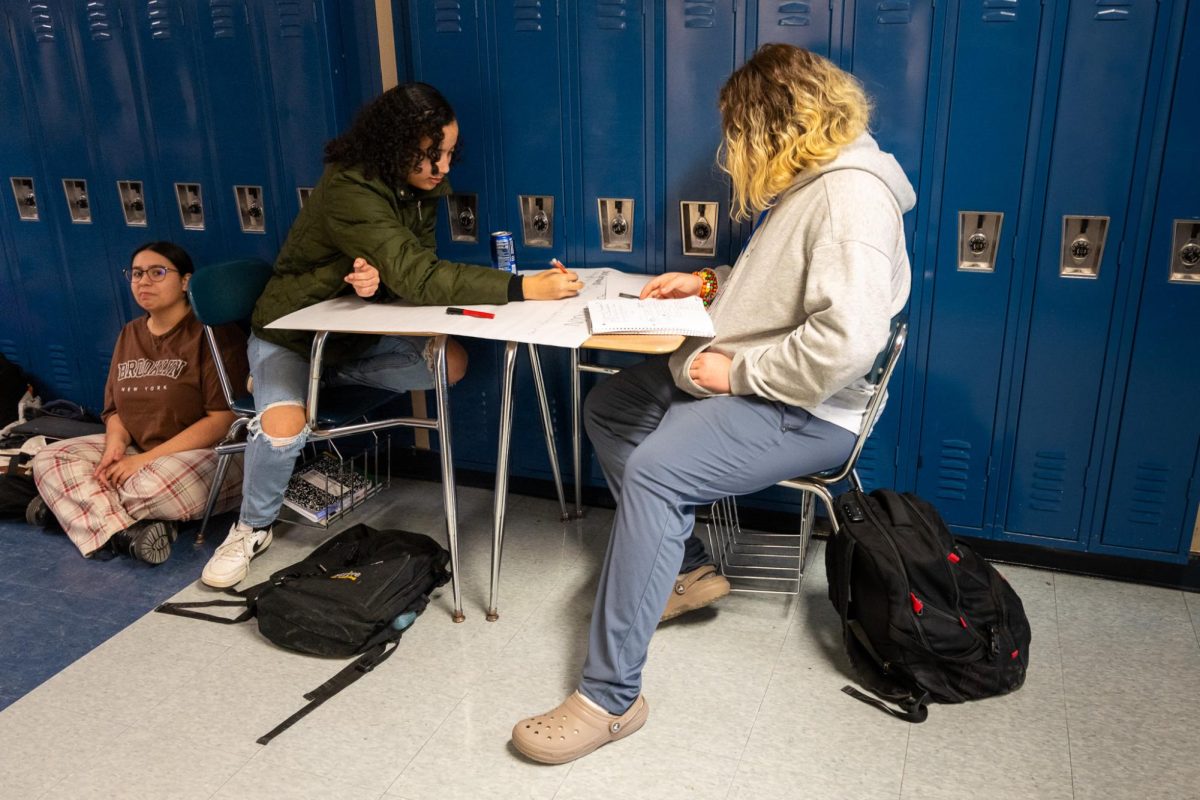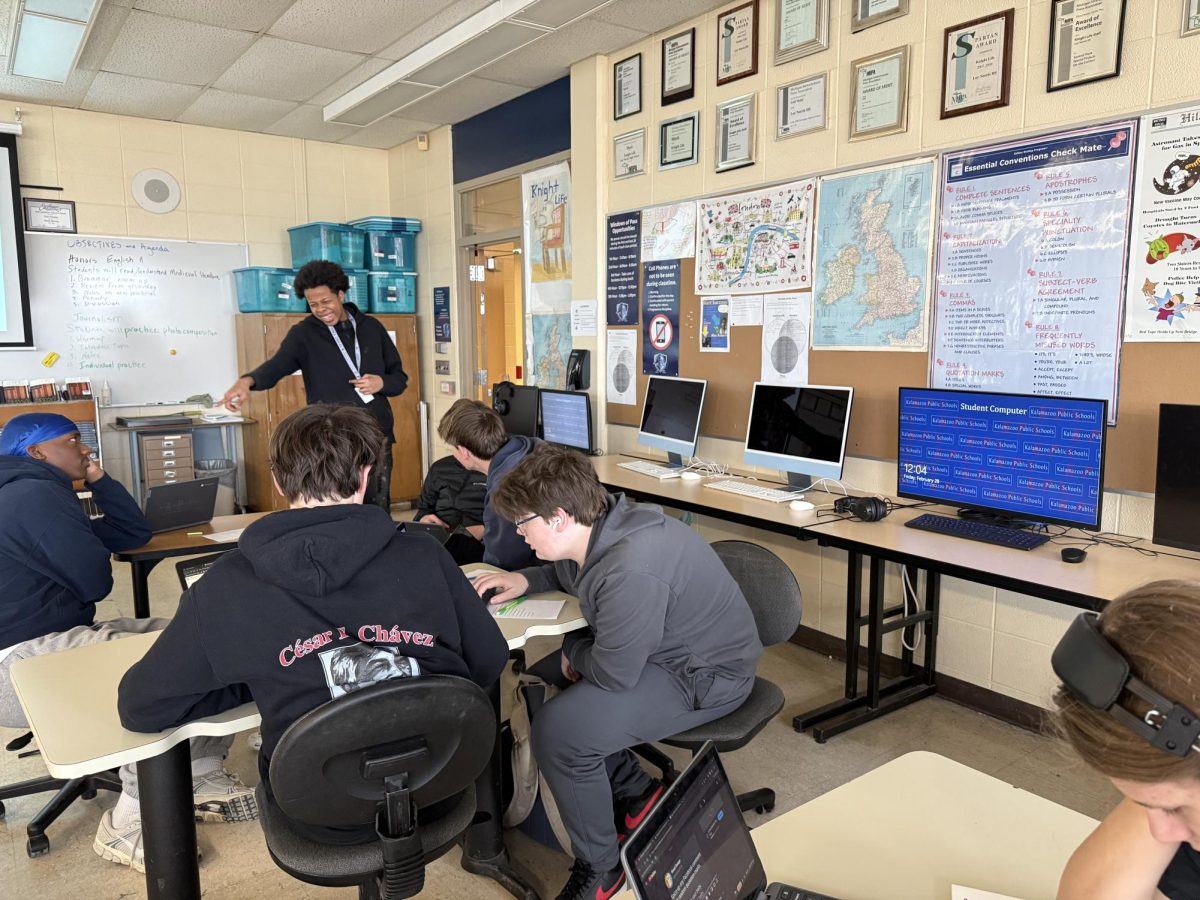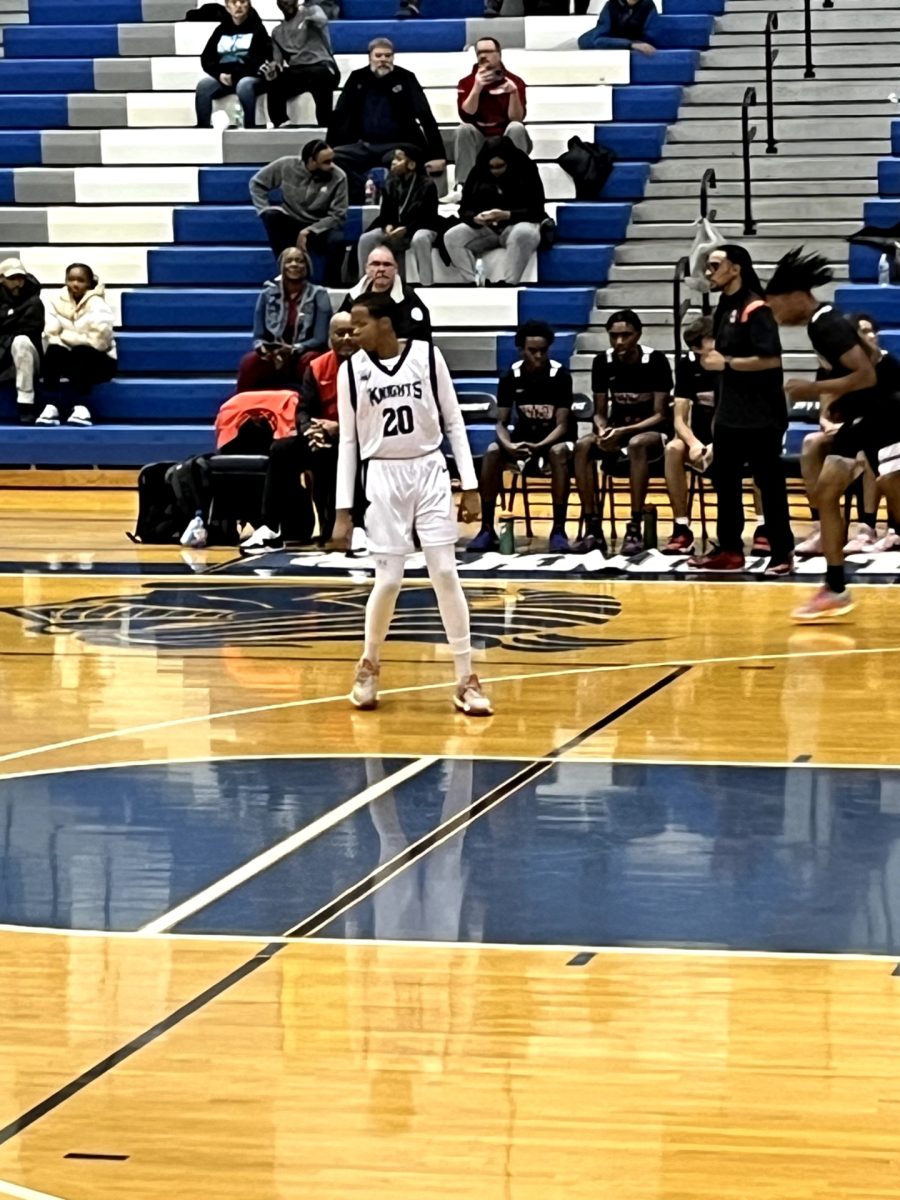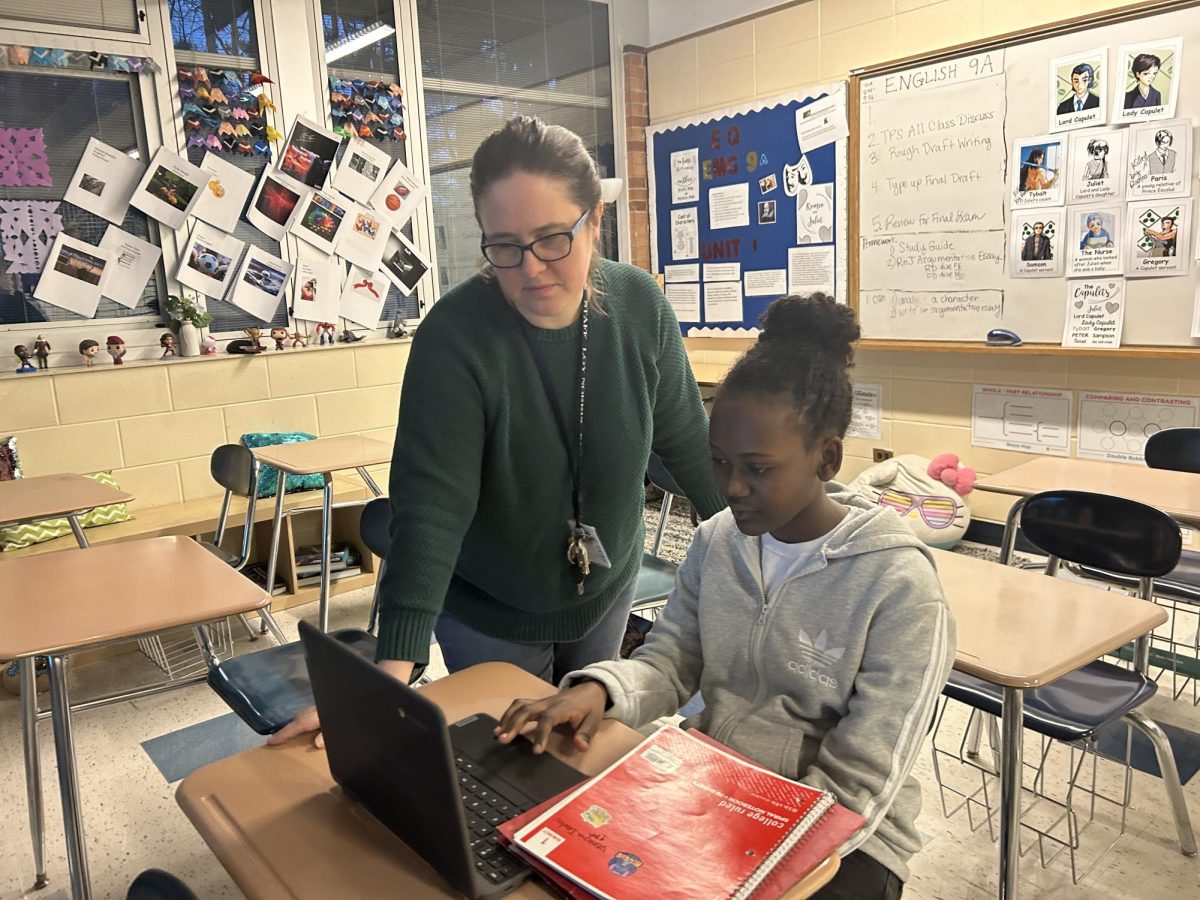Horsehair bows rub against metal strings, reeds vibrate and air bounces through brass instruments. Sound explodes out of J10, a room only important to musicians.
Music plays a big part in many people’s lives. Everyone likes different genres and listens to it in various ways, but for some people, music means so much more than just a song on the radio or a beat in their headphones. To the musicians at Loy Norrix, it can mean everything.
Different students have unique angles on how playing an instrument makes them feel, whether it be current musicians in band or orchestra or former musicians who still hold that love of playing.
“I’ve always been interested in music, I was constantly singing as a kid. I had an interest in band first, actually. But I moved to KPS in fourth grade, learned about orchestra, and it just made sense for me to do it,” said junior Sammy Heyart.
When listening to music, most people don’t see the importance of how the chords go together or how the tempo of a song plays a role in the sound they’re hearing.
However, someone who is well-versed in playing can see that importance and use it whenever they listen to music.
“Playing instruments has let me learn why some things sound the way they do, how chords work together, and how to create songs of my own,” said junior Tobin Waling.
Learning an instrument isn’t just something that happens overnight, though. Many musicians have been working on their craft for most of their lives. However, dedicating almost half of one’s life to an instrument can take a toll on their love for it and diminish the enjoyment they feel while playing.
“I have considered leaving my instrument many times. The most notable time was when I had an orchestra teacher in eighth grade that I did not vibe with. Plus, it was all virtual,” said Heyart. “It just overall was not a great time for me, so I almost decided to not continue in high school.”
Heyart has been playing for close to seven years and is currently one of the viola section leaders in the orchestra.
Music can be so much more than playing an instrument for a class or something nice to listen to. Playing an instrument also boosts activity in the brain and engages both sides of it simultaneously.
The Walden University study Should Every Student Play an Instrument? explains that playing a musical instrument has been shown to enhance memory and improve executive function, including planning and strategic thinking.
Even with all these good outcomes, playing an instrument isn’t for everybody, which can be for a variety of reasons. While some students just grow out of it, others find that it’s just too difficult. For junior Alexis White, playing an instrument was just a temporary thing.
“I felt like it was a great experience to be a part of a band or everything, but I do not feel it was a forever thing for me,” White said. “I feel like I had other interests that called to me more.”
White played music for all three years of middle school, but later left her instrument just before high school.
However, even after leaving an instrument, it can still have a hold on a person.
“I wish I stayed in band because playing an instrument made me feel good and feel like I was learning something at the end of the day,” said White.
Instrumentalists always have something floating around in their heads, whether it be a new piece for class, a tune they heard on the radio, or even a beat a classmate was strumming along to.
With all of the musical bits and bobs floating around their minds, you will never truly know the mental cogs of a musician, but you will definitely hear the noise they make.


